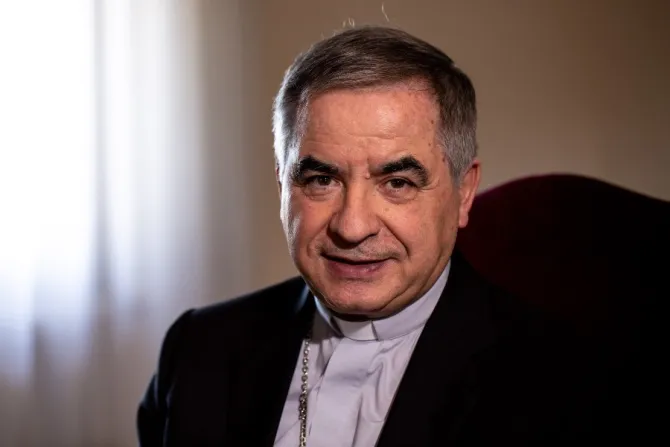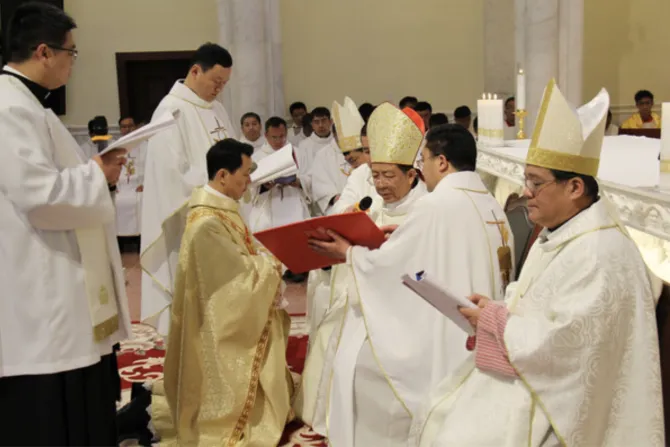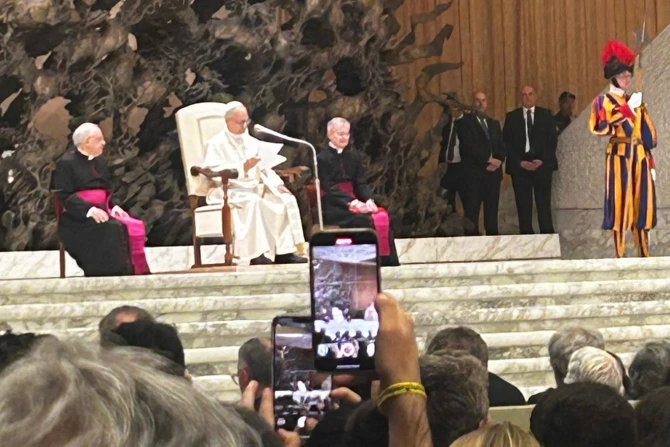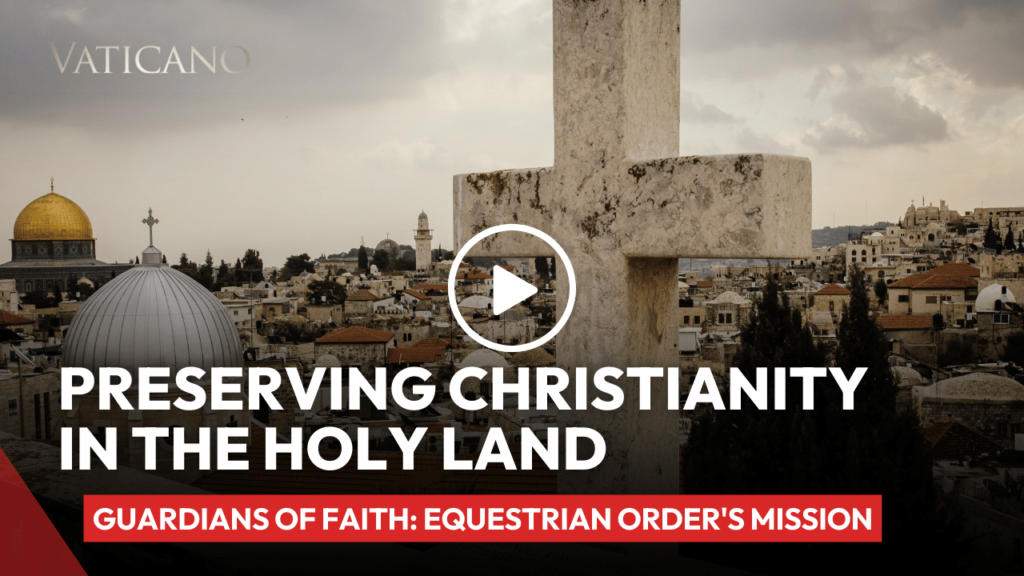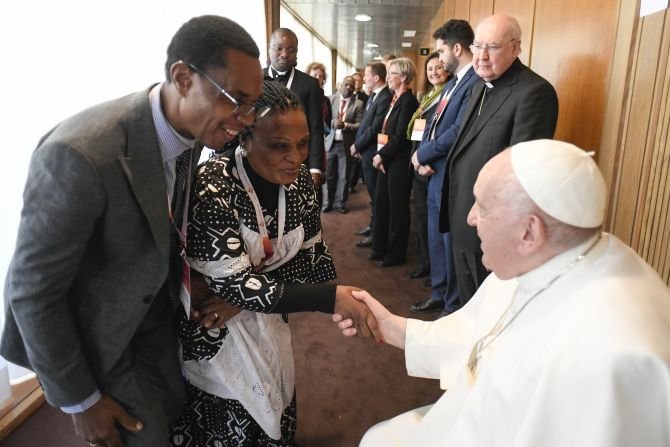Join us as we delve into the Vatican Archives to uncover the transformative leadership of Pope Pius XII and his diplomatic relations with the United States. Cardinal Eugenio Pacelli, as he was known at the time, visited the United States in 1936, becoming the highest-level Vatican official to do so. His warm and collaborative relationship with four sitting U.S. presidents set the stage for closer ties between the two superpowers.
We spoke with Professor Fr. Roberto Regoli, a historian of Church History at the Pontifical Gregorian University in Rome, to gain insight into the diplomatic relations between the Holy See and the United States. He sheds light on why it took so long for official relations to be established in the 20th century and how Pope Pius XII played a crucial role in bringing the two great powers closer together.
With the opening of the Vatican Archives surrounding Pope Pius XII and his papacy, a closer look at this transformative leader is possible. The first half of the 20th Century experienced turmoil and challenges that shook the world and brought the United States to the forefront of world affairs.
Pope Pius XII, who at the time was known as Cardinal Eugenio Pacelli, became the highest-level Vatican official to visit the United States in 1936. He fostered a warm and collaborative relationship with four sitting U.S. presidents.
Professor Fr. Roberto Regoli is a historian of Church History and teaches students at the Pontifical Gregorian University in Rome. We spoke with him on US – Holy See diplomatic relations and why they became official so late in the 20th Century. We also spoke with him on how Pope Pius XII specifically brought these two great powers closer together.
Fr. Roberto Regoli
“The relations between the Holy See and the United States really came into being in the modern era. The crisis of the 1800s made relations come to an end, in fact the funds for American representation in Rome had been taken away. The reasons were political and not economic. What happened in the 1900s is that the United States after World War I became a superpower. And at the same time the papacy was also another superpower and you can’t ignore each other. Within the diplomacy of the United States, Rome is seen as a place of listening, that is, a significant place globally where you can have many relationships. Even with countries not so close to the United States. So, an important role and during the time of World War II we had a representative of the President of the United States of America, first Roosevelt and then Truman at the Holy See. This mission was justified to Congress as a requirement of that moment politically and then it would not be renewed. However, the two world players cannot be ignored. They are two superpowers that are obliged to confront each other on a planetary level, because the relations between the United States and the Holy See are not only bilateral. But if you allow this expression, they are “triangular”. The United States, the Holy See, and Italy. The United States and Holy See, and Europe. The United States, the Holy See, and the Far East. Because at the planetary level they are always on the same borders of the world and this is very important. Two moral superpowers. But also, American superpower is temporal, political, economic, military. And the Pope is a spiritual superpower and in the time of World War II and the Cold War they have to not only interact but sometimes ally with each other. What happens? We move forward into the 1980s, when under President Ronald Reagan and the pontificates of John Paul II, new diplomatic relations are established after more than 100 years.”
One of the key reasons why Pope Pius XII was able to play such a major role in shaping Vatican policy towards the United States was because he was pope for such a long time. From 1939 to 1958. And because he reigned under such extreme circumstances, experiencing World War II and the start of the Cold War, the Holy See was forced to be a protagonist in order to ensure the protection of the faithful and vulnerable.
Fr. Roberto Regoli
“What does Pius XII accomplish? During World War II we know that he tried to carry out a humanitarian diplomacy to aid prisoners, those who were persecuted. He also tried to help German groups who were opposed to Hitler during World War II, when in the United States of America some Catholics did not want to help the Soviet Union in the war against Nazism because the Soviet Union was communist. The pope however, worked to remove the doubts from these Catholics that at that time it was important to help the Soviet Union to fight Nazism. So, during World War II the papacy took a firm stand. This was important because up to that time in international politics, the pope had always attempted to be neutral with respect to others, that is, impartial from several points of view. The Vatican typically took a policy of extreme neutrality. With Pius XII, there was a change. It began at a practical level by favoring certain political stances. Why? Because these political positions were helping Catholicism. They were defending religious interests and at that time liberal democracies were more able to guarantee those freedoms.”
One of the keys to understanding Pope Pius XII’s relationship with the US is Cardinal Francis Spellman. They were close friends dating back to the time when Pope Pius XII was still Cardinal Eugenio Pacelli. Cardinal Francis Spellman served first as Auxiliary Bishop of the Archdiocese of Boston and then as Archbishop of New York.
Fr. Roberto Regoli
“Pacelli’s relations with American presidents and the top levels of American politics were mediated mainly by men close to Pacelli, not so much by apostolic delegates, but we have to remember this is fundamental friendship with Bishop Spellman, then cardinal, because he was really Pacelli’s American man. He was the real key to political power. They say and in their drafting of friendship that preceded the pontificates, which was related to the days of the secretariat of state, of the still young Pacelli that you can understand the privileged relationship with the United States, Spellman is the key to the understanding of that moment.”
Pope Pius XII was able to use the moral weight of the Church to confront the two primary ideological battles of the 20th Century. First in Nazism and then in Communism. Both presented themselves as totalitarian systems of political control.
Fr. Roberto Regoli
“The roles of Pius XII vary according to the danger he had before him, because Nazism on a chronological level was for a much shorter period of time than communism. And the confrontation with communism was not only during the 20th century but it was already hear in the 19th century. We have bishops at the local level in provincial councils condemning communism. So, the anti-communist attitude of the Catholic Church had been present since the previous century. Nazism, on the other hand was something new that arrived very quickly. But its gravity and seriousness was understood by the German bishops and of the Holy See. There was first an ideological confrontation and then a practical confrontation. With communism it was a bit more complex because it was not a problem with one country, but a problem with many countries.”
While the Vatican Apostolic Archives have been opened since the time of the papacy of Pope Leo XIII, this is the first time they have been opened for consultation regarding the papacy of Pope Pius XII. Hopefully Pope Pius XII will be seen in a more human light with the documentation showing all that he did to secure the protection and humanitarian assistance for many during Worl War II. Also, in particular, as a figure with a lead role in shaping diplomatic relations with the US during such a sensitive period in history.

